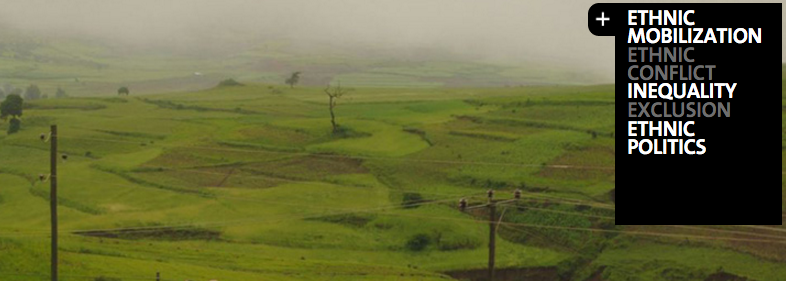Projet de recherche : Ethnic Power Relations and Conflict - Simon Hug

Ethnic Power Relations and Conflict
Ethnic Power Relations and Conflict in Fragile States
A project funded by Social Confilcts r4d SNFS (147210) and led by Prof Dr Lars-Erik Cederman (Global Governance CIS , ETH Zurich) with Prof Dr Emmanuel Gyimah-Boadi (Ghana Center for Democratic Development, Ghana); Prof Dr Simon Hug (University of Geneva, Switzerland); Prof Dr Ali Hamid (American University of Cairo, Egypt); Prof Dr Gebremichael Mesfin (Addis Ababa University, Ethiopia); Prof Dr Naison Ngoma (Copperbelt University, Zambia); Dr Franklin Oduro (Ghana Center for Democratic Development, Ghana); Prof Dr Ricardo Saenz de Tejada Rojas (Universidad de San Carlos de Guatemala, Guatemala) and Prof Dr Madhushree Sekher (Tata Institute of Social Sciences, Indonesia)
From January 2014 to December 2020
With (UNIGE): Heidrun Bohnet, Fabien Cottier
Summary
This project proposes to study the link between group-level inequality and ethnic conflict in fragile states. As illustrated by the Arab spring, numerous civil wars and uprisings, continue to claim thousands of casualties, result in huge refugee flows, and cause economic distress. In most cases the state is either under attack or is so fragile that it can hardly control its territory. While recent scholarship has demonstrated that economic and political inequality between ethnic groups appears to be a major contributing factor to political instability and conflict, the exact mechanisms behind this regularity have so far not been sufficiently probed. Through partnerships with researchers in six carefully selected countries, who will help us improve our data and analysis covering both their own countries and the surrounding region, our project aims to improve the precision of our measures of political and economic inequality, while at the same time extend both data and analysis on mobilization processes involving political organizations that mobilize and represent ethnic groups. More detailed understanding of such processes will, therefore, improve governance such that inequality can be reduced and its adverse consequences, especially with respect to conflict and political instability, can be mitigated.
More information on Social Confilcts r4d SNFS website
9 novembre 2015
Actualités
